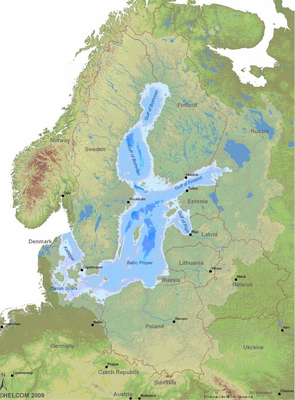Research Seminar by Jun She
Major Baltic Inflow: dynamics and predictability
Date: 20.08.2015
Time: 11:00 - 12:00
Place: Nordlys, DMI
Contact: Cathrine Fox Maule
Major Baltic Inflow (MBI) is a kind of event when a significant amount of N. Atlantic saline waters flow into the Baltic Sea so that a large part of the Baltic Sea deep waters are renewed (from Arkona and Bornholm Basins to the Gotland Deep). MBI is essential to bring oxygen to Baltic deep waters which largely changes the environmental status and the Baltic Sea ecosystem. Before 1980, the MBI occurred more than once per year. However, there are only 4 MBI events in the past 30 years. The most recent MBI event happened in December 2014 when about 198km3 saline water flew into the Baltic, which lifted Baltic mean sea level by more than 1 meter. The reduction of MBI in last 30 years has caused stagnation of the Baltic Sea deep waters, featured by decreasing salinity and increasing hypoxia areas in the Baltic Sea. It was believed that, together with overfishing, reduced frequency of MBI is one of the major reasons for the collapse of the Baltic Cod in last couple of decades. The reasons and mechanisms on the long period of the reduction of MBIs in the past 30 years, however, are still debated. Several potential reasons have been given, e.g., increased riverine input leading to stronger outflow, and increased precipitation in related to stronger westerlies will raise the sea level and fresh the upper layer; increased westerlies can change the occurrences of MBIs by additional mixing in the Danish Straits. However, none of these mechanisms can be regarded as a major explanation of the reduced MBI events in the stagnation period.
The presentation will report recent research results on both the dynamics of MBI variability and predictability of the MBI event. Based on the dynamic study, a comprehensive mechanism is proposed to explain the decadal variability in the Baltic Sea system, especially stagnation and related MBI variability. In the predictability study, a preliminary evaluation of forecasting performance from current operational ocean models is given for the 2014 MBI event; major predictability signals, e.g., forcing and initial conditions were investigated. Based on this research, future research needs for improving MBI prediction are identified.




